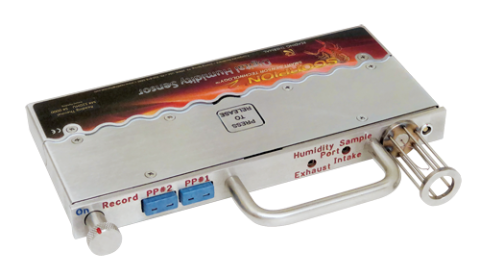Monitoring humidity during the baking process in commercial ovens is crucial for achieving consistent product quality, texture, and taste in baked goods. Humidity plays a vital role in various stages of baking, influencing dough development, crust formation, and overall product characteristics. By closely monitoring and controlling humidity levels through products from Reading Thermal, bakeries can optimize their baking processes, enhance efficiency, and meet the expectations of discerning customers.
Dough Development
One primary reason for monitoring humidity during the baking process is to ensure proper dough development and fermentation. Humidity affects the rate at which dough absorbs moisture and expands, forming desirable textures and structures in baked goods. Insufficient humidity can result in dry, dense products with poor volume and crumb structure, while excessive moisture may cause the dough to become overly sticky and difficult to handle. Bakeries can promote uniform fermentation by maintaining optimal humidity levels and achieving their baked goods’ desired texture and volume.
Humidity control is essential for achieving the perfect crust in baked products. During the initial stages of baking, high humidity helps to keep the dough surface moist, promoting optimal expansion and oven spring. As the baking process progresses, reducing humidity levels can encourage crust formation and the development of desirable crust characteristics, such as color, texture, and thickness. Proper crust development enhances baked goods’ overall appearance, flavor, and texture, making them more appealing to consumers.
Consistent Quality
Monitoring humidity is not just about preventing product defects, it’s about ensuring the highest quality in your baked goods. Fluctuations in humidity levels can lead to issues such as cracked crusts, uneven baking, and product shrinkage, resulting in inferior-quality products that fail to meet customer expectations. By closely monitoring humidity throughout the baking process, you can proactively identify and address potential issues, ensuring the consistent quality that your customers expect from you.
Energy Efficiency
Humidity control is a key player in optimizing energy efficiency and reducing operating costs in commercial bakeries. By maintaining optimal humidity levels in the oven environment, bakeries can achieve more efficient heat transfer and minimize baking times, leading to significant reductions in energy consumption and operational expenses. Moreover, precise humidity control helps bakeries cut down on product losses due to defects or inconsistencies, further enhancing cost-effectiveness and profitability.
Features of the Best Sensors
In recent years, the precision of digital humidity sensors from Reading Thermal has revolutionized the baking industry. These sensors, specifically designed for commercial bakery ovens, provide real-time monitoring of humidity levels throughout the baking process. This allows bakeries to maintain precise control over their oven environments, ensuring consistent product quality. With features such as remote monitoring, data logging, and customizable alerts, these sensors empower bakeries to optimize their baking processes and respond quickly to changes in humidity conditions.
As you can see, monitoring humidity during the baking process is essential for achieving consistency in commercial bakeries. Humidity control influences dough development, crust formation, and overall product characteristics, making it a critical factor in the success of baking operations. By closely monitoring and controlling humidity levels, bakeries can optimize their baking processes, enhance efficiency, and meet the expectations of discerning customers. With the help of digital humidity sensors, bakeries can achieve precise humidity control and ensure the consistent quality of their baked goods. Learn more by contacting Reading Thermal online or calling 610-678-5890.

